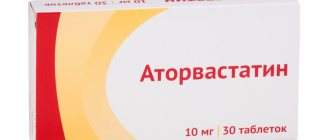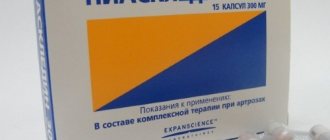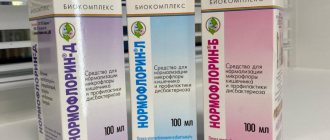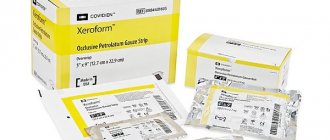Sumamed is an antibiotic produced by two manufacturers: the Croatian company Pliva Hrvatska and the Israeli company Teva. Sumamed is a potent drug, therefore it is prescribed only by prescription and can be prescribed in the form of tablets, capsules or suspensions. Sumamed is suitable for the treatment of pneumonia, bronchitis, Lyme disease, tonsillitis, pharyngitis, otitis and other diseases associated with the respiratory tract and ENT organs. It can also be used effectively for diseases of the skin, genitourinary system and combined persistent infections accompanied by purulent discharge. Treatment can be prescribed to children and adults.
We will talk about how to use the medicine Sumamed: first we will analyze the instructions, then we will answer frequently asked questions and tell you about analogues. You will get a general idea of what this drug is and how to use it.
If you have any questions, check them with your doctor.
Infographics about antibiotics
Indications for Sumamed and contraindications for use
The instructions clarify that the antibiotic is used for infectious and inflammatory diseases provoked by pathogens sensitive to it. The list of infections is presented:
- sinusitis, sinusitis, otitis media, tonsillitis;
- acute and aggravated chronic bronchitis, pneumonia;
- moderate form of anke;
- early stages of Lyme disease;
- pathologies of the genitourinary tract caused by chlamydia.
Sumamed is contraindicated in patients with individual intolerance to the component composition, renal, hepatic dysfunction. The medicine is not prescribed to children under 12 years of age (in 500 mg tablets) or under 3 years of age (in 125 mg tablets). Syrup is prohibited for babies until the first six months of life.
Particular caution is needed when treating patients with myasthenia gravis, mild renal and liver dysfunction, slow heartbeat, and arrhythmic abnormalities. Physician supervision is required during complex therapy with antiarrhythmic drugs.
Description of the drug SUMAMED® for systemic use
- Carbamazepine
In pharmacokinetic studies conducted in healthy volunteers, azithromycin did not have a significant effect on plasma levels of carbamazepine or its active metabolite.
Oral coumarin anticoagulants
In a pharmacokinetic interaction study, azithromycin never altered the anticoagulant effect of warfarin when administered as a single 15 mg dose in healthy patients. In the post-marketing period, an increase in the anticoagulant effect of coumarin derivatives was observed when used in combination with azithromycin. Although a cause-and-effect relationship has not been established, more frequent monitoring of prothrombin time should be considered when azithromycin is used in patients taking coumarin anticoagulants.
While taking cimetidine
two hours before taking azithromycin, no changes in the pharmacokinetics of azithromycin were observed.
Cyclosporine
In a pharmacokinetic study in healthy volunteers who received a daily dose of azithromycin 500 mg orally for 3 days and who subsequently took a single dose of 10 mg/kg cyclosporine orally, the Cmax and AUC0-5 values of cyclosporine were significantly increased. Therefore, these drugs should be used simultaneously with caution. If concomitant use of these drugs is necessary, monitor cyclosporine levels and adjust the dose accordingly.
Efavirenz
Co-administration of a single dose of azithromycin 600 mg and efavirenz 400 mg per day for 7 days did not result in a clinically significant pharmacokinetic interaction.
Fluconazole
The simultaneous use of a single dose of 1200 mg of azithromycin does not change the pharmacokinetics of a single dose of 800 mg of fluconazole. The total concentration and half-life of azithromycin did not change with concomitant use of fluconazole. However, a clinically insignificant decrease in Cmax (18%) of azithromycin was noted.
Indinavir
Concomitant use of a single dose of 1200 mg of azithromycin does not have a significant effect on the pharmacokinetics of indinavir when administered at a dose of 800 mg three times daily for 5 days.
Methylprednisolone
In a pharmacokinetic study of drug interactions in healthy patients, azithromycin did not have a significant effect on the pharmacokinetics of methylprednisolone.
Midazolam
In healthy patients, simultaneous administration of azithromycin 500 mg daily for 3 days does not cause clinically significant changes in the pharmacokinetics and pharmacodynamics of midazolam when administered once 15 mg.
Nelfinavir
The simultaneous use of azithromycin (1200 mg) and nelfinavir (750 mg three times a day) leads to an increase in the concentration of azithromycin at steady state. No clinically significant side effects were identified. There is no need to adjust the dose.
Rifabutin
Concomitant use of azithromycin and rifabutin did not affect the serum concentrations of either drug. With simultaneous use of azithromycin and rifabutin, neutropenia was observed in patients. Neutropenia is associated with the use of rifabutin; a causal relationship when taken in combination with azithromycin has not been established.
Sildenafil
There was no evidence of an effect of azithromycin (500 mg daily for 3 days) on the blood AUC and Cmax values of sildenafil or its major metabolites.
Theophylline
Azithromycin did not affect the pharmacokinetics of theophylline in healthy volunteers. Concomitant use of theophylline and other macrolide antibiotics has sometimes resulted in increased serum theophylline concentrations.
Triazolam
Co-administration of azithromycin 500 mg on day 1 and 250 mg on day 2 and triazolam 0.125 mg on day 2 in 14 healthy patients did not have a significant effect on the pharmacokinetic parameters of triazolam compared with co-administration of triazolam and placebo.
Trimethoprim/sulfamethoxazole
Co-administration of trimethoprim/sulfamethoxazole DS (160 mg/800 mg) for 7 days and 1200 mg azithromycin on day 7 had no significant effect on peak concentrations and urinary excretion of trimethoprim/sulfamethoxazole. Azithromycin serum concentrations were similar to those in other studies.
Cisapride
metabolized in the liver by the enzyme CYP3A4.
Because macrolides inhibit this enzyme, concomitant administration of cisapride may result in QT prolongation, ventricular arrhythmias, and torsades de pointes
.
Data on interactions with astemizole
and
alfentanil
are absent. Caution should be exercised when these drugs are used concomitantly with azithromycin, given the potential effects described with concomitant use of the macrolide antibiotic erythromycin.
Azithromycin should not be used concomitantly with other active substances that prolong the QT interval
.
Adverse reactions
During therapeutic procedures with Sumamed, the occurrence of non-standard effects with symptoms is noted:
- thrombocytopenia, hemolytic anemia;
- candidiasis, pharyngitis, gastroenteritis, rhinitis;
- pneumonia, respiratory diseases;
- attacks of dizziness, cephalalgia, sleep disorders;
- nettle fever, Quincke's edema;
- decreased visual and hearing acuity, vertigo;
- tachycardia, arterial hypotension;
- dyspeptic disorders, flatulence, gastritis;
- dysphagia, shortness of breath, hepatitis;
- liver dysfunction, cholestatic jaundice;
- dermatitis, hyperhidrosis, erythema multiforme;
- myalgia, osteoarthritis, arthralgia, dysuria;
- intertial nephritis, asthenia, febrile conditions.
Patients may experience swelling in the face, kidney pain, chest pain, and nosebleeds.
An overdose of the drug is manifested by nausea, vomiting, diarrhea, and temporary hearing loss. Intoxication requires symptomatic treatment.
Nuances of therapy with Sumamed
The instructions recommend taking medications 60 minutes before meals or 2 hours after them. The dose is taken once a day, without chewing or breaking the integrity of the tablets:
- infections of the ENT organs - 500 mg for 72 hours, a similar dosage is prescribed for damage to the skin and soft tissues;
- migrating erythema - on the first day - 1000 mg, the next 4 days - 500 mg of antibiotic;
- pathologies of the urinary system - a single dose of 1 g of medication;
- acne - 500 mg, therapy lasts three days, then a similar dose - once a week.
In childhood, Sumamed dosages vary:
- infectious pathologies of the skin and respiratory tract – 10 mg per kilogram of body weight, with a duration of therapy of no more than 72 hours;
- tonsillitis, pharyngitis – 20 mg per kilogram of weight, for 3 days;
- Lyme disease - the first day - 20 mg/kg, the next 4 days - 10 mg/kg body weight.
Children's suspension is prescribed for babies over 6 months and under 3 years. For a child weighing up to 15 kg, the syrup is taken with a syringe; for children weighing up to 15 kg, using a measuring spoon. Dosages and course of therapy are similar to the above tablet rates.
Instructions
Visit your doctor
If you feel unwell, consult a doctor. It is prohibited to purchase Sumamed on your own: if the body is incompatible with the drug, then its arbitrary use can be harmful to health. Therefore, you can use these instructions without a doctor’s prescription for informational purposes only.
Buy the drug
Here, pay attention to the form and amount of the drug that you will need for treatment. When you receive the product, pay attention to the expiration date, the integrity of the packaging and the presence of protective stickers on the ends of the packaging. If the packaging looks unpresentable, ask for a quality certificate and make sure that what you are looking at is not a fake.
Memo: how to check the authenticity of any drug.
Study the contraindications
If you bought the drug, unpack it, open the instructions and find the “Contraindications” section. Look at who is not recommended to use sumamed, and who is contraindicated. It is important to always look at the instructions that come with the drug being sold - medicinal formulas are periodically updated, so information from the Internet and from other packages may not be current.
If you are at risk, contact your doctor for additional advice. Until you get an answer, do not take the drug. If the doctor did not take into account contraindications during the examination, then your information will help adjust the course of treatment. If everything is fine, proceed to taking the medicine.
Take the drug
Read the prescribed recipe and the manufacturer's instructions. If you have questions about the dosage regimen and dosage, contact your doctor for additional advice. If everything is clear, proceed to taking the drug.
Evaluate the result
If the prescribed treatment helps, the drug has fulfilled its function and nothing else needs to be done. If Sumamed is not completely used, review the instructions and find the item describing the storage conditions of the medicine. In the future, the stored drug can only be used under the following conditions: you receive a new prescription from your doctor, the storage conditions are met and the expiration date has not passed. In other cases, unused Sumamed is disposed of.
If Sumamed does not help or your condition worsens, you need to make another appointment with your doctor for examination. It is strictly forbidden to prolong treatment and take sumamed on your own - the cause of the ailment can be associated with many factors and cannot be figured out without qualified help.
To take or not to take Sumamed?
If you are concerned about any question, then ask your doctor and do not look for answers on the Internet - your treatment is prescribed based on the individual characteristics of your body, so advice from strangers can be harmful. In this section we have collected answers to popular questions regarding the medicine Sumamed. This information is published for informational purposes and should be confirmed with your doctor.
If the attending physician refuses to advise you or is negligent in his work, then you can complain about him to the chief physician, the local health department, the police, the prosecutor's office or the court. If you are asked to file a complaint, it will be prepared in any form indicating all contact information, circumstances of the case and supporting documents.
Which group of antibiotics does Sumamed belong to?
Sumamed belongs to the macrolides, is part of the azalide subgroup and is based on azithromycin - this is a modern antibiotic that is resistant to gastric juice and easily penetrates into the cells of the body. The high throughput is complemented by a special molecular formula that allows the drug to penetrate cell membranes, quickly find foci of inflammation and leave a small concentration of the substance in the blood. At the site of inflammation, azithromycin slows down the development of viral bacteria and, at the proper concentration, has a bactericidal effect - it suppresses the appearance of new microorganisms.
Sumamed is a drug that can neutralize and stop viral bacteria
How to take Sumamed: before meals or after?
Sumamed can be taken in any order: before or after meals. If this is done before meals, then the scheme will be as follows: taking the drug → a break of 1 hour or more → eating. If this is done after a meal, then the scheme will be different: meal → a break of 2 hours or more → taking the drug.
How many times a day should I take Sumamed?
The recommended dose for an adult without special instructions from a doctor is 1 time per day. In case of a missed dose, the action plan will be as follows: you need to take a new dose as soon as possible and for all subsequent doses, maintain a pause of 24 hours.
| 1 day | Day 2 | Day 3 | Subsequent days |
| Reception | Pass | Reception at 13.00 | Reception at 13.00. Previously it is impossible |
In case of overdose, vomiting, nausea, bowel dysfunction or temporary hearing problems may occur. No special treatment is required here and symptomatic therapy is sufficient: if you feel nauseous, drink more fluids, etc.
How many days should I take Sumamed?
Sumamed belongs to the group of drugs that are sold by prescription. Therefore, only a doctor can determine the duration of treatment and indicate the number of days during which the drug must be taken.
How many days should an adult take Sumamed?
For each adult, the course of treatment is determined individually after examination by a doctor - it all depends on the degree of the disease and the general condition of the patient. For example, for bronchitis, the standard course of treatment is 3 days and during this time the patient should take 1.5 grams of azithromycin. If the infectious disease is associated with the urinary tract, then 1 gram of azithromycin is administered at a time. When a patient exhibits signs of tick-borne borreliosis, the course of treatment can last for 5 days - on the first day, 1 gram of azithromycin is taken, and on all subsequent days the dose is reduced to 500 milligrams.
Is it possible to drink Sumamed for more than 3 days?
It is possible, but this requires the consent of the attending physician. For some patients, the standard three-day course is not enough - the body does not have time to normalize and improve blood counts. In this case, doctors extend the course of treatment for another three days and in the end it turns out that the patient takes sumamed for six days. It is important to know that some doctors strongly disagree with this approach. They believe that if positive dynamics are not observed within the prescribed time frame, then it is worth replacing the drug. Therefore, here the patient must independently decide what to do next: extend the course of treatment and trust the attending physician or look for a new doctor.
How long will it take for Sumamed to work?
Usually the drug begins to act within 30-60 minutes after administration. You can count on the first noticeable effect in terms of improving your well-being within a day. However, this is a general rule that may vary depending on the state of the disease and the individual characteristics of the body. It is important to understand that if your health has improved, but the course of treatment has not been completed, then you cannot stop taking the drug without first consulting a doctor.
How long does Sumamed last?
The concentration of the drug in the body can remain up to seven days after completion of treatment and taking the last dose. If you need accurate data, consult your doctor. He will prescribe tests that will give an accurate answer.
Is it possible to give Sumamed to a child?
Sumamed is contraindicated for children under six months of age. In all other cases, consent and a prescription from the attending physician are required. If the child is under three years old, then a powder mixture of sumamed is prescribed, which is mixed with water until it becomes a homogeneous suspension. From the age of three, the use of tablets is allowed: you can swallow the drug whole or dissolve the drug in 50 milliliters of water (boiled or distilled). In this case, you need to remember the dosage, which is calculated based on body weight, the nature of the disease and the doctor’s instructions. The exact data on the relationship between body weight and the required amount of the drug must be double-checked in the instructions from the manufacturer, which comes in the package with the powder or tablets.
How many days should a child take Sumamed?
Only a doctor can prescribe the course of treatment and dosage, but in most cases the appointment is given for 3 days.
Is it possible to drink expired Sumamed?
No. The drug has a set shelf life that cannot be violated: for powders it is two years, and for tablets it is three years. Always consider this point before planning treatment and do not forget that the expiration date of medications must be checked at the pharmacy at the checkout. Otherwise, you will not receive a refund and will not be able to use the purchased drug.
Never use expired medications
Is it possible to drink Sumamed for a sore throat?
If the cause of sore throat is associated with streptococcal infections, then Sumamed is not prescribed. In all other cases, you can use the drug if the body shows a normal reaction to test smears, which the doctor takes before drawing up a treatment prescription.
If I take Sumamed, can I drink alcohol?
Sumamed is a complex antibiotic that each body tolerates differently, and for a strong immune system its use can go unnoticed. However, even for a strong body, taking Sumamed together with any alcoholic drink is fraught with two negative consequences:
- Alcohol can completely neutralize the effect of the drug and all treatments will be ineffective.
- Alcohol will cause side effects and the liver will suffer first of all. If the liver cannot cope with the load, acute intoxication or toxic hepatitis may develop.
Therefore, if you take Sumamed, then alcohol in any quantity is contraindicated.
Do not combine alcohol and antibiotics
Features of interaction
The instructions draw attention to the following nuances when combining Sumamed:
- with anthracidals - the concentration of azithromycin is reduced by 30%;
- substrates of P-glycoprotein – leads to an increase in its concentration in the bloodstream;
- Zidovudine – a slight effect on the metabolism and absorption of its active components is recorded;
- ergot alkaloids – not recommended due to the risk of developing ergotism;
- cyclosporines – regular checking of their blood levels and dose adjustment are required;
- Rifabutin - there is a possibility of developing neutropenia.
Use together with Terfenadine may lead to arrhythmic disorders. Therapy is carried out with extreme caution.
If you took Sumamed, how long after can you drink alcohol?
You need to remember the date of the last dose and count seven days - this is the period during which part of the drug can be stored in the blood and it is undesirable to take alcohol. Finished taking the drug → took a seven-day break → made sure there were no other medical contraindications → starting from the eighth day you can drink alcohol.
Is it possible to take Sumamed after taking Amoxiclav?
If, after completing the prescribed course of treatment, one antibiotic does not help, then it can be replaced with another. To make a replacement, the attending doctor needs to perform several steps: look at the result of taking the first antibiotic → select a new antibiotic → study the body’s reaction to the new antibiotic → write a prescription and prescribe treatment. From this we conclude that taking Sumamed after taking Amoxiclav tablets is only possible with the permission of a doctor.
Analogs
Sumamed is a broad-spectrum antibiotic, where there are many other drugs with similar pharmacological characteristics. These analogues can only be used if they have been approved by the attending physician. Below we will compare Sumamed with other antibiotics that are more suitable for its properties than others. You will be able to see the main differences between drugs and, based on these differences, choose the optimal antibiotic.
Self-medication is life-threatening
What is better Vilprafen or Sumamed?
| Vilprafen | Sumamed |
| Active ingredient: josamycin | Active ingredient: azithromycin |
| The course of treatment can last up to ten days, during which the drug must be taken two to three times a day. | Standard course of treatment: take one tablet three times a day |
| Unlike sumamed, it has fewer side effects, therefore it is more suitable for treating children | Compared to vilprafen, it has a large number of contraindications and side effects. |
What is better for a child: Flemoxin, Solutab or Sumamed?
| Flemoxin Solutab | Sumamed |
| Active substance: amoxicillin | Active ingredient: azithromycin |
| The course of treatment takes five to ten days. Two additional days will be needed to consolidate the effect - this will have to be done even if the symptoms of the disease are completely eliminated | Standard course of treatment: take one tablet three times a day |
| Compared with sumamed, it has fewer side effects, is easier to tolerate and is used to treat more severe diseases. | Less well tolerated and may exhibit more adverse reactions |
Which is better: Augmentin or Sumamed?
| Augmentin | Sumamed |
| Active ingredients: amoxicillin and clavulanic acid | Active ingredient: azithromycin |
| The antibiotic must be taken for five days with an interval of 12 hours between doses. In some cases, the frequency of administration can be increased to three times a day | Standard course of treatment: take one tablet three times a day |
| It is eliminated faster and retained less in the body. If you use the suspension option, it is suitable for treating children from three months of age | It takes longer to excrete, is less well tolerated, shows more side effects and can only be taken by children from the age of six months |
Which is better: Klacid or Sumamed?
| Klacid | Sumamed |
| Active substance: clarithromycin | Active ingredient: azithromycin |
| The drug should be taken twice a day for five to fifteen days | Standard course of treatment: take one tablet three times a day |
| Eliminates faster and is easier to tolerate | More adverse reactions and a longer elimination cycle from the body |
Which is better: Suprax or Sumamed?
| Suprax | Sumamed |
| Active substance: cefixime | Active ingredient: azithromycin |
| The drug should be taken twice a day for seven to ten days | Standard course of treatment: take one tablet three times a day |
| It is eliminated from the body faster, retains less in the blood and has a large number of possible side effects. To remove certain microorganisms, it may be prescribed along with additional medications. | It takes longer to eliminate, has fewer side effects and is almost always used as a stand-alone drug |
Which is better: Sumamed or Amoxiclav?
| Amoxiclav | Sumamed |
| Active substance: amoxicillin and clavulanic acid | Active ingredient: azithromycin |
| The drug should be taken one to three times a day for five to fourteen days | Standard course of treatment: take one tablet three times a day |
| It is eliminated faster, has fewer side effects and is contraindicated in tablet form for children under twelve years of age. The same antibiotic is available in the form of a suspension, which can be given to children starting from two months. | Stays longer in the body, is less tolerated and is allowed for children over six months of age. |
Which is better: Sumamed or Azithromycin?
| Azithromycin | Sumamed |
| Active ingredient: azithromycin | Active ingredient: azithromycin |
| Standard course of treatment: take one tablet three times a day | Standard course of treatment: take one tablet three times a day |
| Azithromycin is a medicinal copy (generic) of sumamed. The drug almost completely copies sumamed in terms of effectiveness, number of adverse reactions, course of treatment and composition. Price difference: azithromycin is cheaper than sumamed | High-quality accompanying substances are used to help them be better absorbed into the body and provide more effective treatment. Hence there are fewer adverse reactions and better tolerability in children. Will always cost more than azithromycin |
Remember
- Sumamed is a popular antibiotic that helps to cure many infectious diseases in a short time.
- Sumamed is a prescription drug that can only be prescribed by your doctor. Taking it without a prescription is dangerous for the health of children and adults.
- The drug Sumamed has many analogues, most of which are easier to tolerate, but require longer use.
What else is important to know
Doctors often prescribe antibiotics for preventive purposes to counteract viral infections - this does not affect the healing process, but it can harm the child’s body. This is done due to the fact that parents of sick children use traditional methods of treatment and provoke the development of serious diseases. To avoid all this, watch the following videos. In them, Doctor Komarovsky explains which methods of self-medication are unacceptable at home and under what signs you should make an appointment with a doctor for a consultation.
Analogs
If adverse reactions occur, Sumamed is replaced with a drug with typical characteristics. The list of analogues is presented:
- Azax;
- Azitrox;
- Azithromycin;
- Asicin;
- Zitrox;
- Zomax.
The cost of substitutes depends on the country of origin and the pharmacy markup. The choice of a suitable drug is the responsibility of the attending physician; independent selection of analogues is prohibited.
Reviews
Opinions about the drug vary. In reviews of Sumamed one can find a positive attitude due to its convenient administration and rapid recovery from bronchitis, sinusitis or tonsillitis. Kids like the suspension; they are not fussy about its taste.
Some patients make complaints about adverse reactions that have occurred. For some, the therapy provoked diarrhea and discomfort in the intestinal area. The majority noted that Sumamed does not provoke the formation of allergic reactions.








